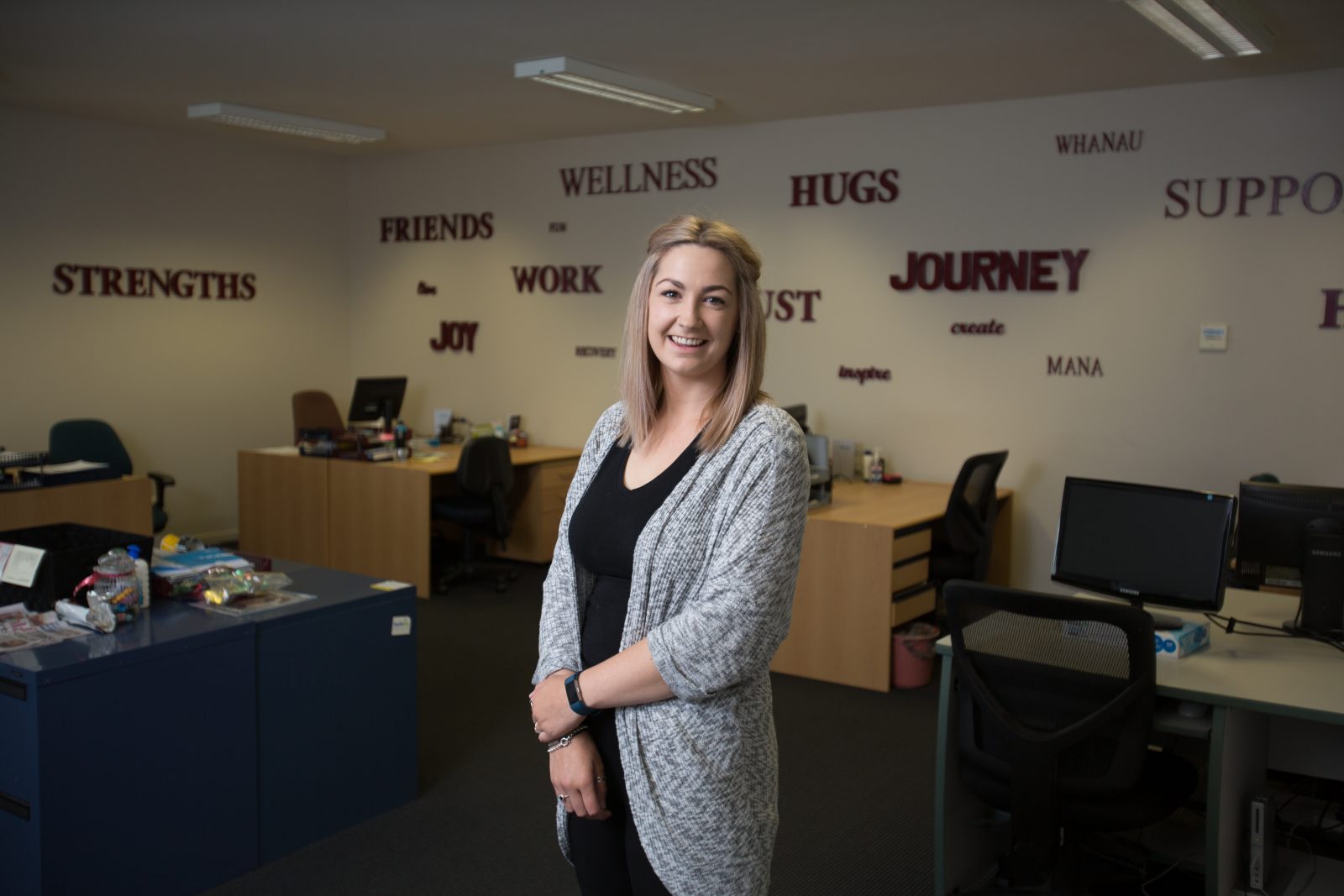Tegan Coote is a young apprentice based in Invercargill. In doing her apprenticeship she doesn’t need a hammer, nails or a hard hat. She needs a different set of tools.
‘I think empathy, patience and self-reflection are essential tools to have in this role,’ says Tegan, a Mental Health Support Worker and apprentice at PACT, an organisation providing support to people recovering from mental illness and people with intellectual disabilities.
‘My role involves working one on one with young people recovering from, or affected by mental illness. I work closely with them and their families to develop and work on goals together and to build up their confidence.’
Coote says she had always wanted to do something that involved helping people. When a role opened at PACT, she applied and got the job. PACT has provided her with on-the-job training to achieve a nationally recognised qualification.
She is now on the home stretch to complete her Apprenticeship in Mental Health and Addiction Support with the support of PACT, and Industry Training Organisation, Careerforce.

PHOTO CAPTION: 2,100 workers needed between 2018 and 2022 to meet new job growth and replacement demand
‘It’s really good having the knowledge that the apprenticeship brings. I’ve already learned more about Māori culture, found out about other agencies in the community that my clients can use and I have gained meaningful connections.’
Andrew Saunders, Careerforce General Manager for Employer Services said, ‘Apprenticeships in health, wellbeing, social and community services are proving very popular with employers. We now have almost 1,500 apprentices and that number is increasing rapidly as employers realise that apprenticeships are an effective way to upskill and retain staff.’
Saunders says that the Apprenticeship in Mental Health and Addiction Support is the second most popular apprenticeship programme, following the Apprenticeship in Community Facilitation, for those working across aged care, youth work, disability support, social services and allied health services.
Coote finds her job really rewarding and has really appreciated the opportunity to do an apprenticeship.
‘I’ve been given a great stepping stone. I always want to learn more and keep driving to get better and better. Having been offered this apprenticeship, I think it’s such a great first step and I just want to get this done and then see what’s next.’
Attracting workers in the mental health support sector
The mental health and addiction support sector are looking for more workers like Tegan Coote.
The Mental Health and Addiction sector needs around 2,100 workers between 2018 and 2022 to meet new job growth and replacement demand.
Only recently the Government announced the extension of the Care and Support Workers Pay Equity Settlement to an estimated 5,000 mental health and addiction support workers.
The settlement delivers a new pay scale that reflects workers’ qualifications and experience. Apart from increasing the wages of workers, the settlement improves access to training and aims to reduce turnover in the sector.

